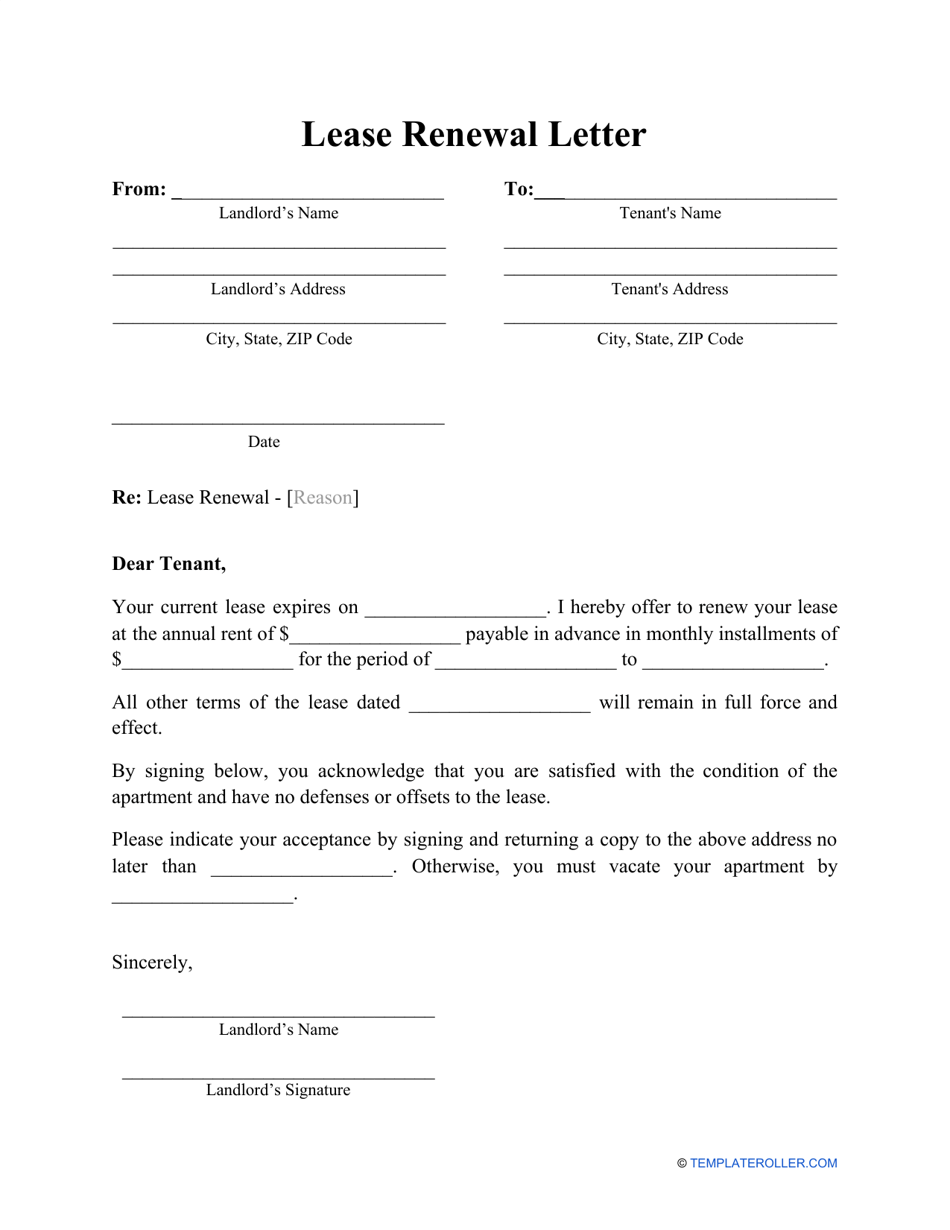Imagine this: You’re comfortably settled in your current job, the responsibilities feel manageable, and your colleagues are friendly. But, the contract for your position is nearing its end, and a nagging feeling sets in. What if this isn’t the right fit for you anymore? How do you gracefully decline to renew the contract without burning bridges?

Image: experisets.github.io
That’s where a well-crafted letter of non-renewal comes in. This letter is more than just a formality; it’s an opportunity to communicate your decision clearly, professionally, and respectfully. In this article, we’ll dive deep into the art of writing a sample letter of not renewing a contract, covering everything from its components to essential tips for handling the situation with finesse.
Understanding the Importance of a Non-Renewal Letter
A Formal Communication for a Professional Transition
A letter of non-renewal is a formal document that serves as official notification of your decision not to continue the contractual agreement. It’s crucial for maintaining a professional image, especially if you wish to maintain a positive relationship with the other party. Whether it’s a business contract, a lease agreement, or an employment contract, this letter demonstrates your commitment to a clear and transparent approach.
Beyond its formality, this letter allows you to express your gratitude for the opportunity. It provides a platform for concisely outlining your reasons for non-renewal, which can be helpful for both parties in moving forward. When done thoughtfully, it ensures that both parties can begin the process of transition with clarity and minimal friction.
Crafting Your Sample Letter of Not Renewing Contract: A Step-by-Step Guide

Image: www.pinterest.com
1. Identify the Contract and Parties Involved
Start by clearly stating the contract that you are declining to renew. Include the date of the initial contract and any pertinent identification such as a contract number or project name. Then, acknowledge the individuals or entities involved on both sides of the agreement. This sets the stage for a clear and unambiguous communication.
2. Express Gratitude and Acknowledgement
Before delving into your reasons for non-renewal, take the time to express your gratitude for the opportunity. Highlight any positive experiences or valuable skills acquired during the contract period. This demonstrates your respect for the relationship and allows for a more amicable tone.
3. Clearly State Your Decision
Concisely state your decision not to renew the contract. Use clear and direct language, avoiding jargon or ambiguity. For example, you can state, “This letter serves as official notification that I will not be renewing the contract for [contract name/service] that expires on [date].”
4. Explain Your Reasons for Non-Renewal
While you don’t need to go into extreme detail, it’s professional to offer a brief explanation of your decision. Focus on providing constructive feedback, if possible, without being overly critical. Perhaps your goals have shifted, you can’t commit to the timeframe, or you’ve found a better opportunity. Keep your reasons professional, objective, and focused on your future path rather than dwelling on the past.
5. Express Appreciation and Maintain a Positive Tone
End the letter with a positive note, expressing your appreciation for the opportunity to work with the other party. Maintain a respectful and professional tone throughout the entire letter. Even if you are not renewing the contract, it’s always a good idea to leave the door open for future collaborations or opportunities.
Key Tips for Writing a Sample Letter of Not Renewing Contract
1. Be Timely:
Send your letter well in advance of the contract’s expiration date. The exact timeframe depends on the type of contract, but allowing at least 30 days is recommended. This allows ample time for the other party to plan accordingly.
2. Proofread Carefully:
Errors in grammar, spelling, or punctuation can reflect poorly on your professionalism. Ensure your letter is free from any mistakes before sending it. It is also a good idea to have another individual review your letter before sending it.
3. Consider Your Audience:
Tailor the language and tone of your letter to the specific audience. If you’re dealing with a formal business arrangement, maintain an appropriate level of formality. However, if it’s a more informal agreement, you can be slightly less formal.
FAQ
Q: Can I provide a reason for not renewing the contract?
A: Yes, providing a reason for your decision can be helpful for both parties to understand the situation. However, focus on providing constructive feedback without being overly critical. There’s no need to go into extreme detail; a general explanation is sufficient.
Q: What if I want to renegotiate the contract?
A: If you have a desire to renegotiate the contract, you can express your interest in doing so. However, be sure to clearly outline your specific requests for changes and be prepared to negotiate in good faith.
Q: How do I handle a negative response from the other party?
A: Maintain a professional demeanor. If the other party expresses dissatisfaction, try to remain calm and polite. Acknowledge their concerns and respond with empathy. Ultimately, it’s important to be prepared for a range of reactions and maintain a professional approach throughout the process.
Sample Letter Of Not Renewing Contract
Conclusion
A well-written sample letter of not renewing a contract is an essential tool for navigating a professional transition. By adhering to the guidelines outlined above, you can ensure a smooth and respectful process while maintaining a positive relationship with the other party. Remember to be timely, clear, and professional in your communication, leaving a lasting impression of your integrity and professionalism.
Are you interested in learning more about crafting effective communication for professional transitions? Let me know in the comments below, and I’ll share more valuable insights and resources.






